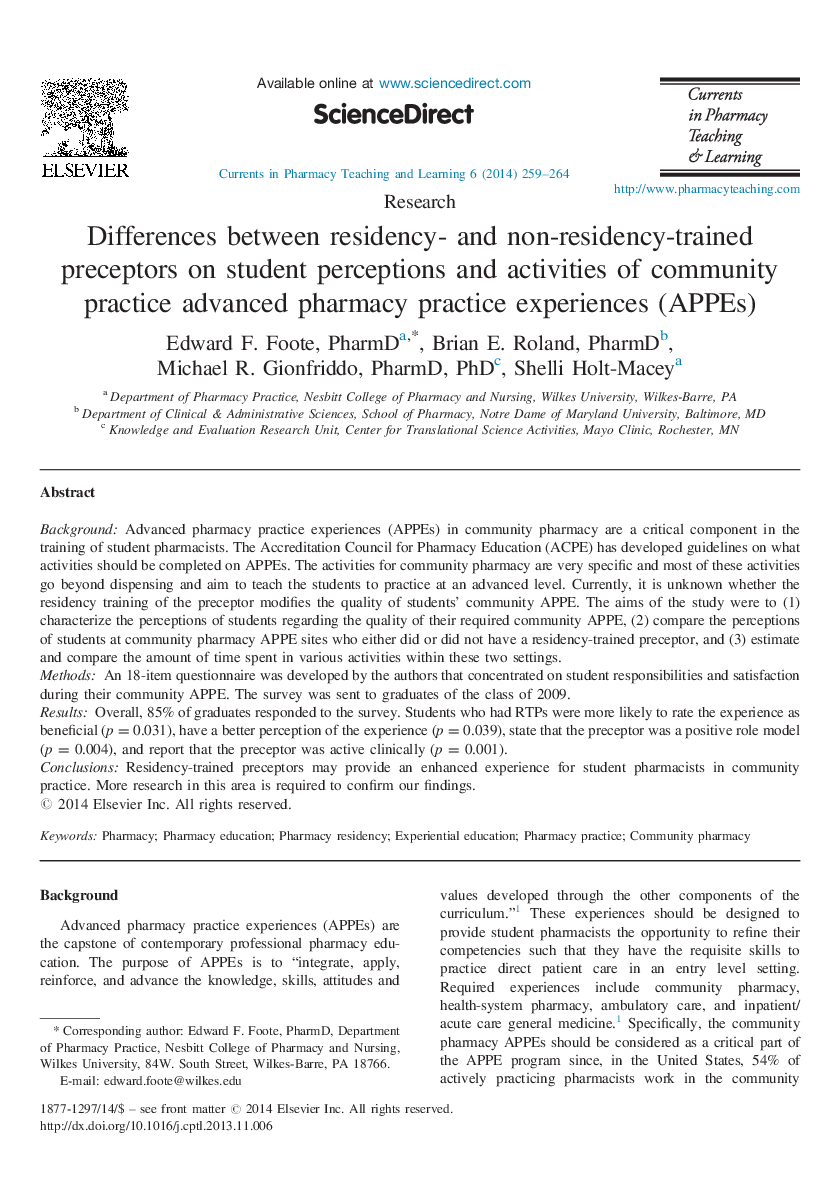| Article ID | Journal | Published Year | Pages | File Type |
|---|---|---|---|---|
| 353043 | Currents in Pharmacy Teaching and Learning | 2014 | 6 Pages |
BackgroundAdvanced pharmacy practice experiences (APPEs) in community pharmacy are a critical component in the training of student pharmacists. The Accreditation Council for Pharmacy Education (ACPE) has developed guidelines on what activities should be completed on APPEs. The activities for community pharmacy are very specific and most of these activities go beyond dispensing and aim to teach the students to practice at an advanced level. Currently, it is unknown whether the residency training of the preceptor modifies the quality of students’ community APPE. The aims of the study were to (1) characterize the perceptions of students regarding the quality of their required community APPE, (2) compare the perceptions of students at community pharmacy APPE sites who either did or did not have a residency-trained preceptor, and (3) estimate and compare the amount of time spent in various activities within these two settings.MethodsAn 18-item questionnaire was developed by the authors that concentrated on student responsibilities and satisfaction during their community APPE. The survey was sent to graduates of the class of 2009.ResultsOverall, 85% of graduates responded to the survey. Students who had RTPs were more likely to rate the experience as beneficial (p = 0.031), have a better perception of the experience (p = 0.039), state that the preceptor was a positive role model (p = 0.004), and report that the preceptor was active clinically (p = 0.001).ConclusionsResidency-trained preceptors may provide an enhanced experience for student pharmacists in community practice. More research in this area is required to confirm our findings.
